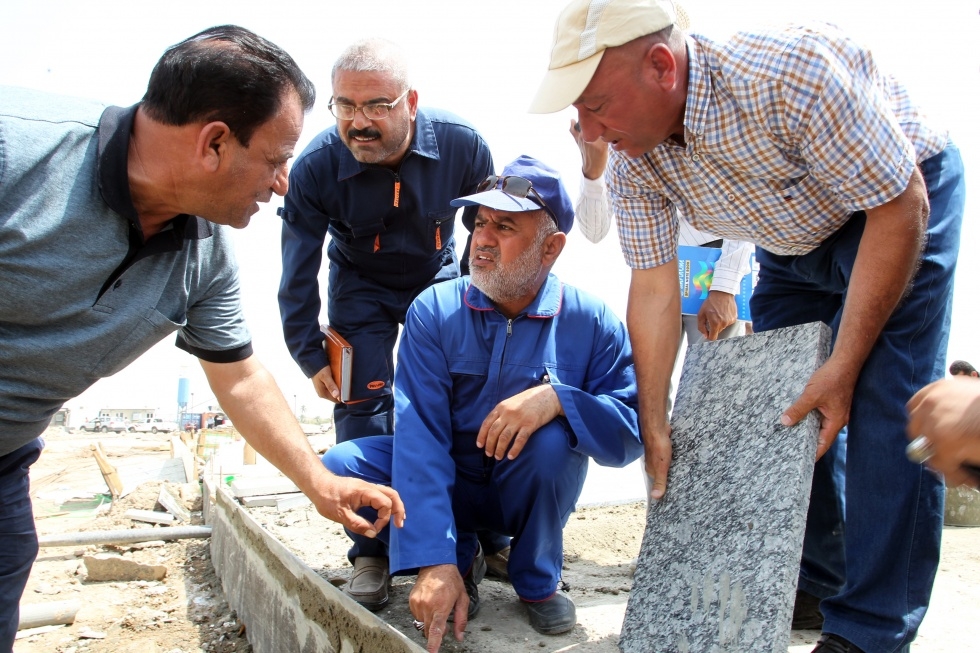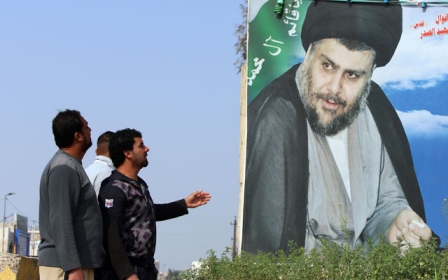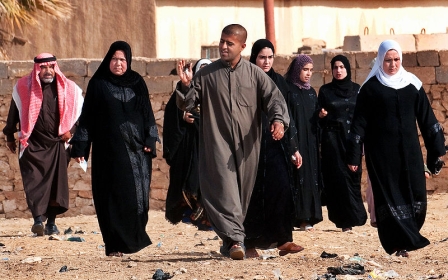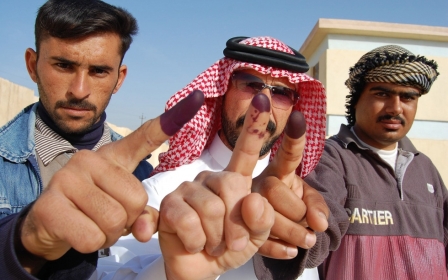Popular governor in a boiler suit could be Iraqi PM in waiting

By Prashant Rao
AMARA, Iraq - Ali Dawai is enormously popular on Facebook, with countless photos of the Iraqi provincial governor picking up rubbish or sipping tea with people while wearing his trademark blue boiler suit.
As officials count the votes from April 30's general election, Dawai's Ahrar movement, linked to powerful Shiite cleric Moqtada al-Sadr, is touting him for a much bigger role -- that of prime minister.
Dawai is among several potential challengers to Prime Minister Nuri al-Maliki and his bid for a third term.
In a country where many view their elected leaders as corrupt and distant, the 47-year-old has won plaudits in the southern province of Maysan for concentrating on providing basic services and meeting the people.
"We have completed thousands of projects in Maysan, especially those linked with infrastructure," Dawai said, sitting in a cavernous room in the provincial government headquarters.
"The distance we have covered in the past three years has been big. Many projects have been completed, and we have rebuilt and focused on the priority of basic services for the people."
Declining to be drawn on his chances for the premiership or what he would do in the job, he says the federal government should devolve more power to the 18 provinces.
Dawai lists Iraq's three biggest challenges as deteriorating security, poor basic services and a lack of unity among ethnic and religious groups.
Born in Majar al-Kabir, a small town near Maysan's capital Amara, Dawai says he spent several stints in prison and on the run from former dictator Saddam Hussein's Baath party.
Headed anti-corruption watchdog
He worked in a government sugar factory in the province and after the 2003 US-led invasion that ousted Saddam, joined the provincial anti-corruption watchdog, which he soon headed.
He obtained a bachelor's degree in Islamic Studies in 2008, and then, following 2010's parliamentary election, he became governor of Maysan as part of a deal between Maliki and the Sadrists.
Dawai is among the few declared candidates for Maliki's job, but others have been mooted, including former vice president Adel Abdul Mahdi and ex-interior minister Bayan Jabr Solagh.
But all of the candidates have flaws, including Dawai.
Abdul Mahdi is tainted by the alleged involvement of former bodyguards in a 2009 bank robbery and Solagh presided over the interior ministry when it was rife with militia infiltration.
As for Dawai, rival parties say he is benefiting from projects approved by his predecessors, and that he is being excessively praised, given that Maysan's provincial council and other parties have also contributed to improvements.
Local critics also say Dawai has concentrated on services and the poor at the expense of the middle class, health and education.
There is also the fact that if he became premier, he could not speak to the United States.
Because of his party having opposed Washington's military involvement in Iraq, and Sadr's partisans having taken up arms against US troops, the Sadrists publicly refuse to meet American officials.
That means Dawai would be unable to talk directly to Baghdad's biggest arms supplier, a country with which it has a strategic partnership agreement.
Deputy Governor Nadhim al-Saadi, who belongs to Maliki's political alliance, said "it is impossible."
Proud of his successes
"We have a strategic treaty with the US; we have so many agreements with them. How can we implement these strategic agreements with the US" if Dawai becomes prime minister.
Dawai dismisses the criticisms, and focuses on listing his successes.
Electricity supply in Maysan is better than elsewhere, Amara's streets are markedly cleaner and new bridges and infrastructure projects are going up across the city.
In one neighbourhood, voters have only praise for Dawai, and insist he can handle the top job.
"He is noble, loyal and honest, and he is always helping the people," says toy shop owner Hassan Radhi Kadhim.
"Ali Dawai built up the poor areas (of Maysan)... so if he becomes prime minister, he will build the country."
The province has several key advantages that make reconstruction easier than elsewhere in the country.
It is sparsely populated, with less than three percent of the nationwide population, it has largely avoided the near-daily violence in much of the rest of the country and it gets a budgetary bounty from Baghdad.
Maysan benefits from what local officials describe as three budgets: one from the central government that is awarded to all provinces, a supplementary allocation based on its substantial oil production and a third for rehabilitation of marshland drained by Saddam.
As a result, new projects are under construction across Amara, including a $35-million (25-million-euro) amusement park and open area dubbed Maysan Entertainment City that Dawai says will rival Baghdad's sprawling Zawraa Park.
On a recent inspection visit he drank sweet black tea while talking to labourers, and even climbed a rickety ladder to what will soon be a public toilet.
As the governor strode through the massive site under the scorching sun, in his boiler suit and baseball cap, one of his staffers turned aside and told AFP: "This is Ali Dawai."
Middle East Eye propose une couverture et une analyse indépendantes et incomparables du Moyen-Orient, de l’Afrique du Nord et d’autres régions du monde. Pour en savoir plus sur la reprise de ce contenu et les frais qui s’appliquent, veuillez remplir ce formulaire [en anglais]. Pour en savoir plus sur MEE, cliquez ici [en anglais].




